The global agricultural sector is striving to produce enough food to meet the needs of a growing population, all while trying to improve its carbon footprint.
As the conversations around sustainability in agriculture continue to progress and topics such as climate action, biodiversity, water quality and fossil fuel usage – amongst many others – are being highlighted, there is one key factor that is crucial to supporting farms on their sustainability journey: ensuring that there is a talent pipeline for the agricultural sector.
As farming in Ireland continues to evolve with farm sizes increasing, so do does the demand for employees on farms. However, the sector needs to look at how it will attract, engage and retain people working on farms to future proof its long-term outlook.
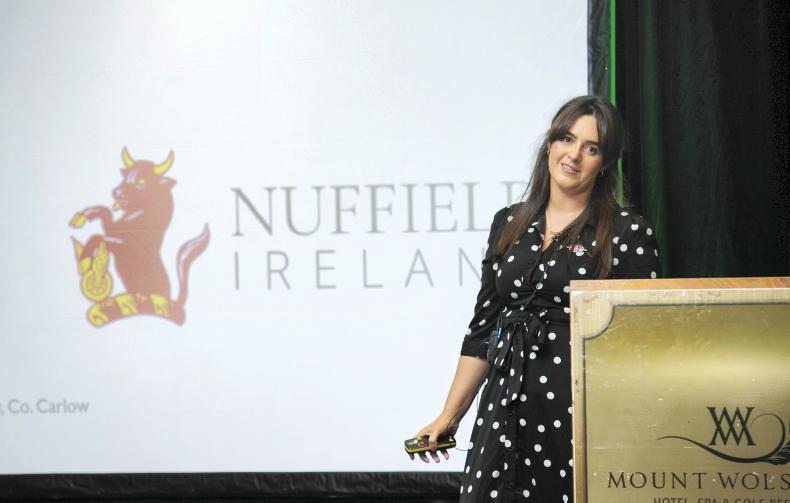
Gillian Willis presenting at the Nuffield conference. \ Finbarr O'Rourke
Attract
At farm level the first step in attracting people to work on farms is writing a clear job description. The farmer must be clear on what specific role they want this person to fill on farm and what skills are required.
Being open-minded about the types of roles on farms is important: while they are often in more physical roles such as milking or tractor work, perhaps having a part-time person to do the admin on the farm will free up more time for the farmer to be out on farm doing the work they enjoy most.
The UK is no different from Ireland in finding it difficult to attract people to work in the sector.
With an increasingly diverse ethnic population, the future farming workforce will look very different.
A newly formed Nuffield UK Reputation and Public Outreach group has identified that there is a need and an opportunity to promote diversity and inclusion in farming across the UK and this has seen the creation of AgDiversity.
AgDiversity’s aim is to improve farmer confidence around the topic of diversity and inclusion through dedicated online modules.
It aims to help farmers to better communicate with people from different backgrounds and welcome them as employees. As the population in Ireland also changes, initiatives such as these should be considered by the Irish agri-sector in the future.
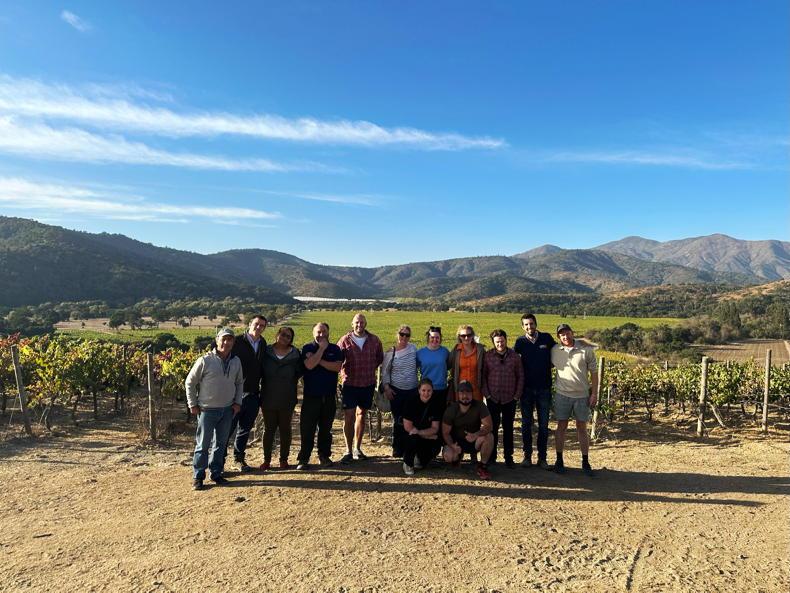
Winery visit in Chile was part of Gillian Willis's study trip. \ Finbarr O'Rourke
Engage
Once a person is employed on farm, it is important for the farmer to support them in their role not only in the initial stages, but as it evolves to ensure they stay engaged.
The first few weeks, for any new employee, are critical to ensuring they feel welcomed and are clear on what their role is.
Having an induction plan ensures they are equipped with the relevant information, contacts and support they need to succeed.
A farmer should ensure they carve out time within their own schedule during this period to spend time with the employee to show them the ropes.
If an employee is hired on a part-time basis during the busy season, where possible, farmers should consider finding time in advance to meet with the employee.
It is also important for farmers to trust employees as they settle into their role on farm, recognising that how they carry out tasks may be different to how the farmer themselves would approach it.
Once the task itself is completed successfully the farmer should recognise this achievement. Acknowledging when an employee completes a task or introduces new procedures successfully on farm keeps them engaged and fosters a sense of accomplishment for them within their role.

Gillian Willis visited Chile's largest dairy farm. \ Finbarr O'Rourke
Retain
Retaining employees who are performing well and contributing to the overall success of the farm should be a top priority for any farmer.
Communication is key to retention and understanding what motivates individual employees is important as employees tend to remain loyal to a job when they feel they are being recognised and rewarded accordingly.
Reward is often associated with money and whilst this is an important factor, other things such as more flexibility, educational support or more managerial experience could be a motivating factor for employees.
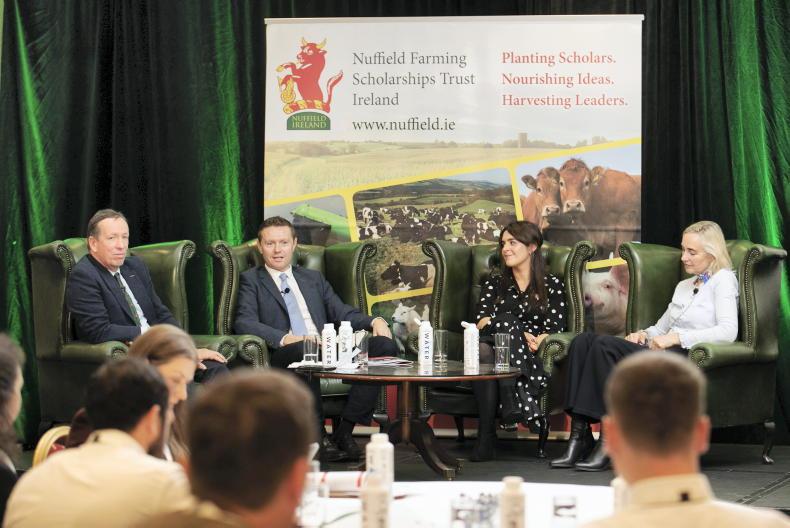
Gillian Willis presenting at the Nuffield conference. \ Finbarr O'Rourke
Next steps
Nuffield research travels have convinced me the future of employment on farms is a challenge globally but those countries that embrace change and identify innovative ways to attract, engage and retain people on farms are the ones leading the way.
From an Irish perspective, the future talent pipeline for Irish agriculture needs to be a core focus in the development of the government’s next agri-strategy.
In order to ensure the strategy is people-focused, stronger collaboration between industry, government bodies and media is needed to promote the agri-sector positively as a desirable sector to work with key actions and measurable data points being identified.
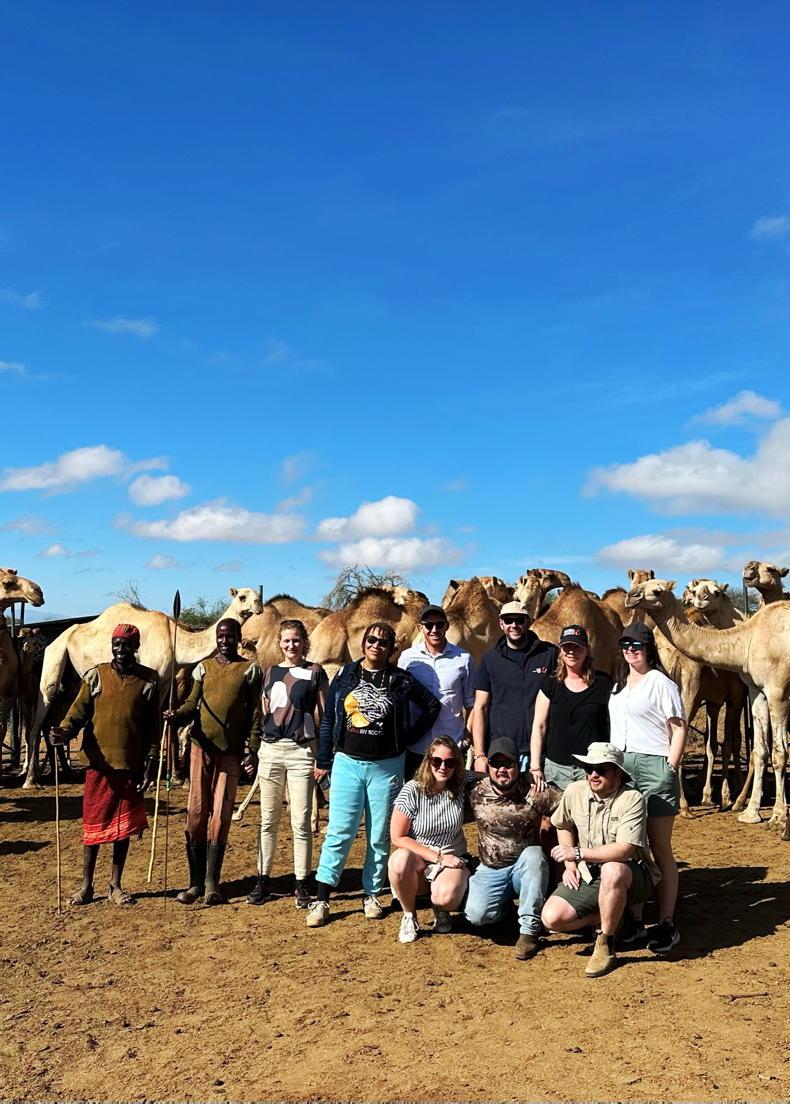
A camel farm in Kenya. \ Finbarr O'Rourke
Gillian Willis is a 2023 Nuffield Scholar from Co Carlow who is graduate development manager with Ifac. She recently presented her report at the annual Nuffield Ireland Conference titled ‘Future Proofing People Management in Irish Agriculture’. The full report is available on the Nuffield website
nuffield.ie
The global agricultural sector is striving to produce enough food to meet the needs of a growing population, all while trying to improve its carbon footprint.
As the conversations around sustainability in agriculture continue to progress and topics such as climate action, biodiversity, water quality and fossil fuel usage – amongst many others – are being highlighted, there is one key factor that is crucial to supporting farms on their sustainability journey: ensuring that there is a talent pipeline for the agricultural sector.
As farming in Ireland continues to evolve with farm sizes increasing, so do does the demand for employees on farms. However, the sector needs to look at how it will attract, engage and retain people working on farms to future proof its long-term outlook.

Gillian Willis presenting at the Nuffield conference. \ Finbarr O'Rourke
Attract
At farm level the first step in attracting people to work on farms is writing a clear job description. The farmer must be clear on what specific role they want this person to fill on farm and what skills are required.
Being open-minded about the types of roles on farms is important: while they are often in more physical roles such as milking or tractor work, perhaps having a part-time person to do the admin on the farm will free up more time for the farmer to be out on farm doing the work they enjoy most.
The UK is no different from Ireland in finding it difficult to attract people to work in the sector.
With an increasingly diverse ethnic population, the future farming workforce will look very different.
A newly formed Nuffield UK Reputation and Public Outreach group has identified that there is a need and an opportunity to promote diversity and inclusion in farming across the UK and this has seen the creation of AgDiversity.
AgDiversity’s aim is to improve farmer confidence around the topic of diversity and inclusion through dedicated online modules.
It aims to help farmers to better communicate with people from different backgrounds and welcome them as employees. As the population in Ireland also changes, initiatives such as these should be considered by the Irish agri-sector in the future.

Winery visit in Chile was part of Gillian Willis's study trip. \ Finbarr O'Rourke
Engage
Once a person is employed on farm, it is important for the farmer to support them in their role not only in the initial stages, but as it evolves to ensure they stay engaged.
The first few weeks, for any new employee, are critical to ensuring they feel welcomed and are clear on what their role is.
Having an induction plan ensures they are equipped with the relevant information, contacts and support they need to succeed.
A farmer should ensure they carve out time within their own schedule during this period to spend time with the employee to show them the ropes.
If an employee is hired on a part-time basis during the busy season, where possible, farmers should consider finding time in advance to meet with the employee.
It is also important for farmers to trust employees as they settle into their role on farm, recognising that how they carry out tasks may be different to how the farmer themselves would approach it.
Once the task itself is completed successfully the farmer should recognise this achievement. Acknowledging when an employee completes a task or introduces new procedures successfully on farm keeps them engaged and fosters a sense of accomplishment for them within their role.

Gillian Willis visited Chile's largest dairy farm. \ Finbarr O'Rourke
Retain
Retaining employees who are performing well and contributing to the overall success of the farm should be a top priority for any farmer.
Communication is key to retention and understanding what motivates individual employees is important as employees tend to remain loyal to a job when they feel they are being recognised and rewarded accordingly.
Reward is often associated with money and whilst this is an important factor, other things such as more flexibility, educational support or more managerial experience could be a motivating factor for employees.

Gillian Willis presenting at the Nuffield conference. \ Finbarr O'Rourke
Next steps
Nuffield research travels have convinced me the future of employment on farms is a challenge globally but those countries that embrace change and identify innovative ways to attract, engage and retain people on farms are the ones leading the way.
From an Irish perspective, the future talent pipeline for Irish agriculture needs to be a core focus in the development of the government’s next agri-strategy.
In order to ensure the strategy is people-focused, stronger collaboration between industry, government bodies and media is needed to promote the agri-sector positively as a desirable sector to work with key actions and measurable data points being identified.

A camel farm in Kenya. \ Finbarr O'Rourke
Gillian Willis is a 2023 Nuffield Scholar from Co Carlow who is graduate development manager with Ifac. She recently presented her report at the annual Nuffield Ireland Conference titled ‘Future Proofing People Management in Irish Agriculture’. The full report is available on the Nuffield website
nuffield.ie











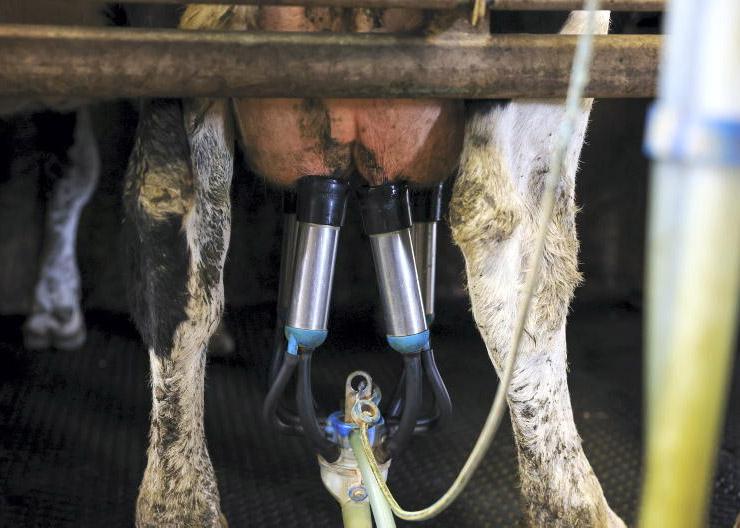
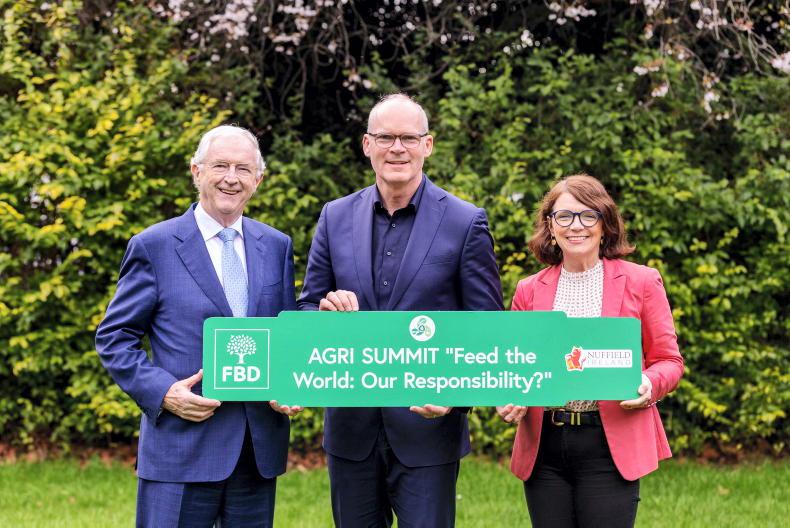
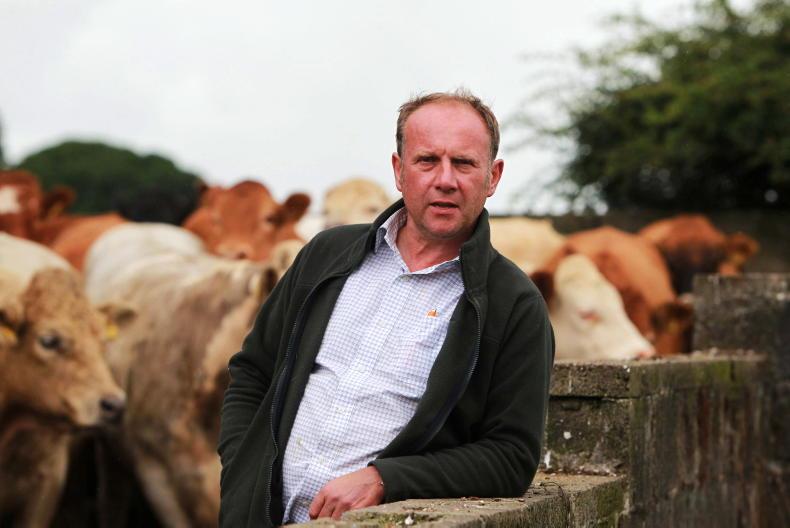
SHARING OPTIONS